If you’re curious about river etiquette when you’re fly fishing, this is your guide. Get tips for being a responsible steward of the sport.

It’s 5:30am in the morning, and pitch black. The only way to get ready for the day is by headlamp, but that’s not the only issue . . . it’s so cold. The kind of cold that triggers some doubt as to whether it is worth giving up the sleep and warmth to keep moving.
Even cracking the truck door to go out in the damp pre-dawn of a Pacific Northwest winter morning seems to be a little more drawn out than it would normally be. But, it’s just what you do to get the good swing water when chasing migratory fish.
After fumbling around in the cold and dark, scanning the ground over and over to make sure a key piece of gear isn’t being left behind, the anticipation and a little nervousness sets in on the railroad track walk to the spot. The reward for the early wake-up and drive is the spot, hopefully holding an elusive Steelhead.
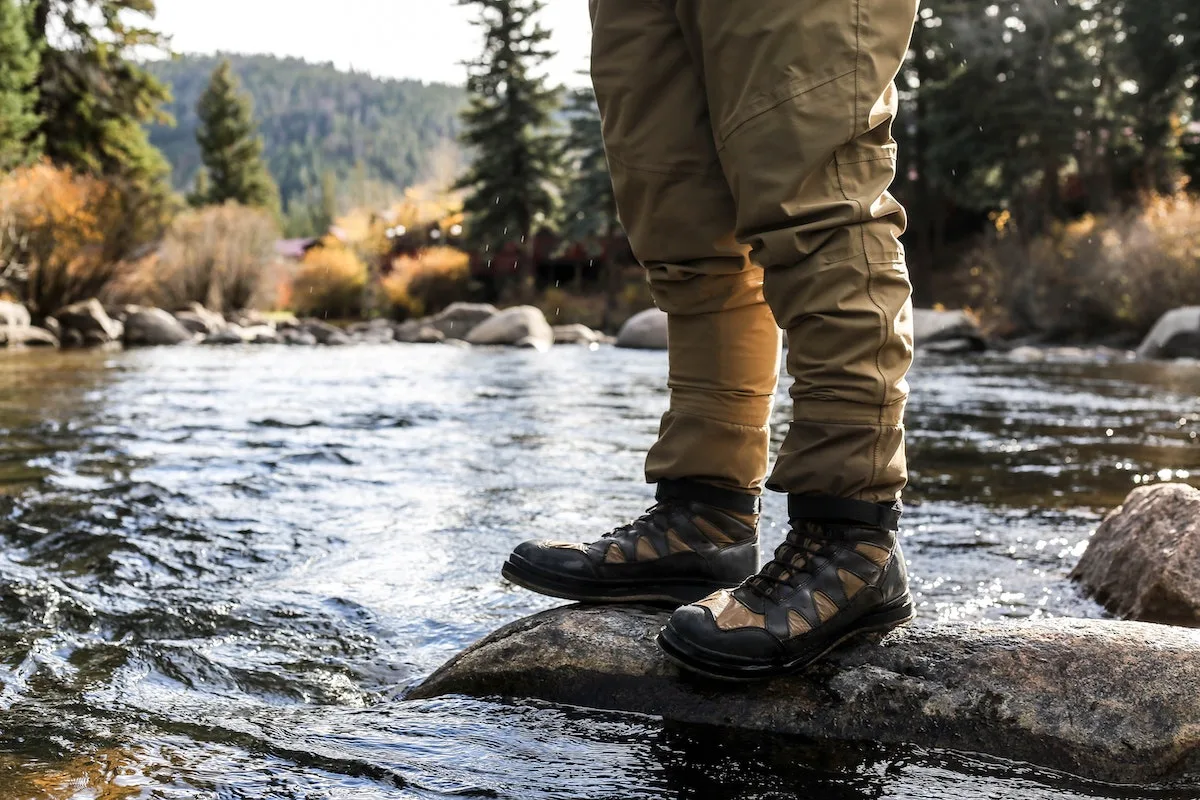
Stepping off the railroad track and into the brush, the anticipation switches to excitement as blackness of the river is contrasted against the bushes and trees that have just enough morning light to be visible without the light of a headlamp.
In just a few more steps, all the prep and effort will be worth it. And that thought is barely complete when three blinding headlamps pop on and illuminate the fact that it won’t be just your spot this morning.
Not only will it not be your spot, but a little knowledge of the unwritten rules to river etiquette, means it’s time to get back on the railroad tracks and give those sleep deprived fisherman the space they need to swing some flies. They won, and the easiest river etiquette rule to understand is First Come, First Fish.
Fly Fishing Etiquette
Like many aspects of fly fishing, river etiquette is one of those things you pick up from the people you associate with on the river. Over time, guides, friends, and common sense will provide the download you need to be respected on the river. However, it doesn’t hurt to get ahead with some tips.
Amount of Space to Give
Depending on where you fish this may or may not be an issue. If space is not an issue count yourself lucky. With the increase in new fly fisherman, good public water, especially near metro areas is getting harder to come by.
It’s always funny to listen to friends complain about the congestion on more remote waters in Wyoming and Montana when they see a couple cars spaced miles apart on the morning drive up the river. Contrasting that to a car in every pullout of a Stonefly hatch in central Oregon. So what is the right amount of space to give?
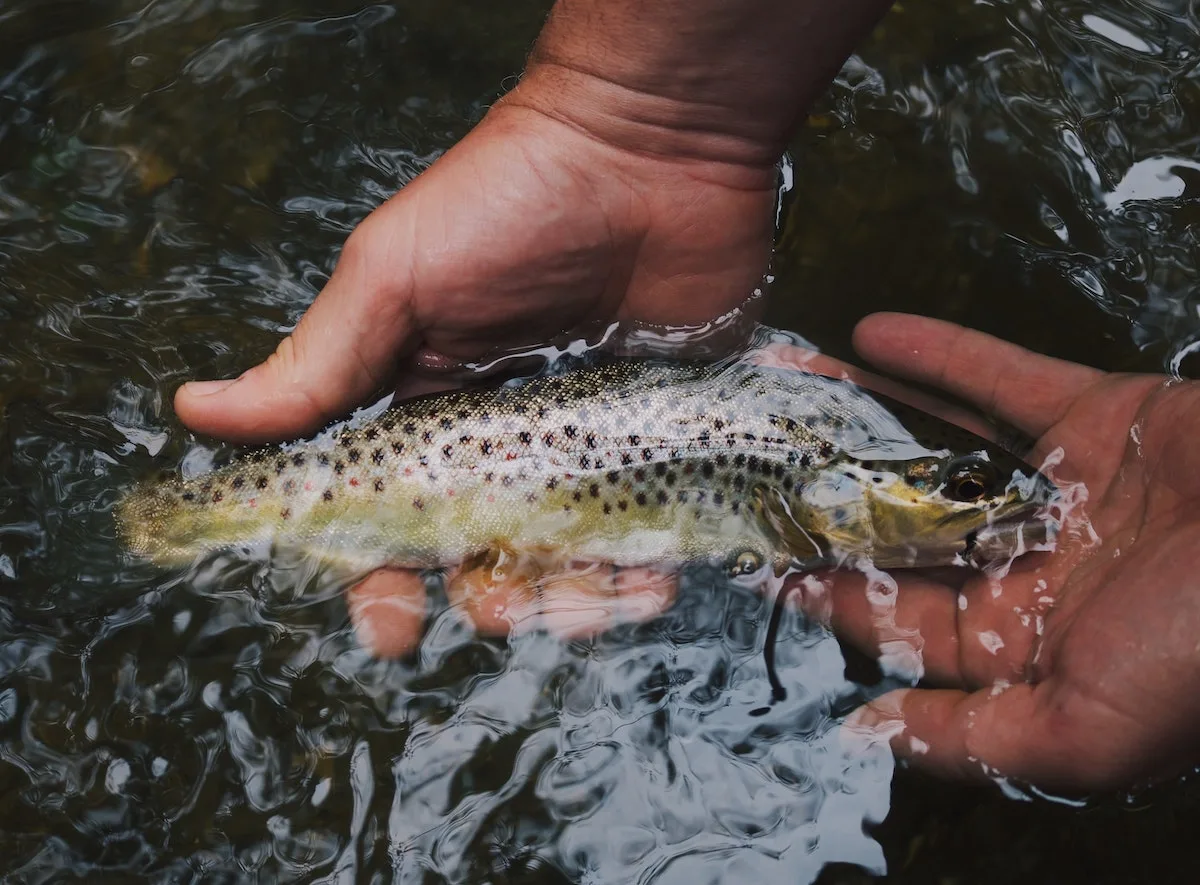
A general rule of thumb to follow is that fisherman working up river have the right away. Again, this isn’t written in stone anywhere, but stepping into the water just above a fisherman on a good section of water is not classy move. It may take some time to learn how a spot is fished, but in general, a section of water is fished bottom to top.
A fisherman needs the space to find where the fish are holding in particular spot which can change day to day based on weather, water flow, and “pressure” – or how much the spot the has been fished in prior days.
A good way to avoid having to make the proximity decision is up on the road. If you see a car parked in a pullout, move on to the next one. You can bet at least one person from that car is down in the water you want to fish. In time you might even be able to pick out a guides vehicle which will often have a rod rack with space for more rods than one person can fish. Just move on.
Don’t Camp on a Spot
Look, there are going to be times when you just don’t get to your favorite spot in time. However, that shouldn’t keep you from being able to cycle back through and have a crack at it later. It was a little shocking a few weeks back seeing fly fisherman on the Yellowstone River with camp chairs on the bank. Very unusual to see fisherman “camped out” in front of great water hoping to see a certain hatch with no plans to fish anywhere else that day.
We are all limited to the public water we have access to so take your best shot and move on. You haven’t fished very long if you haven’t witnessed another fisherman landing a fish in a spot you just left. It happens, they just know what to fish…or they are just better than you.
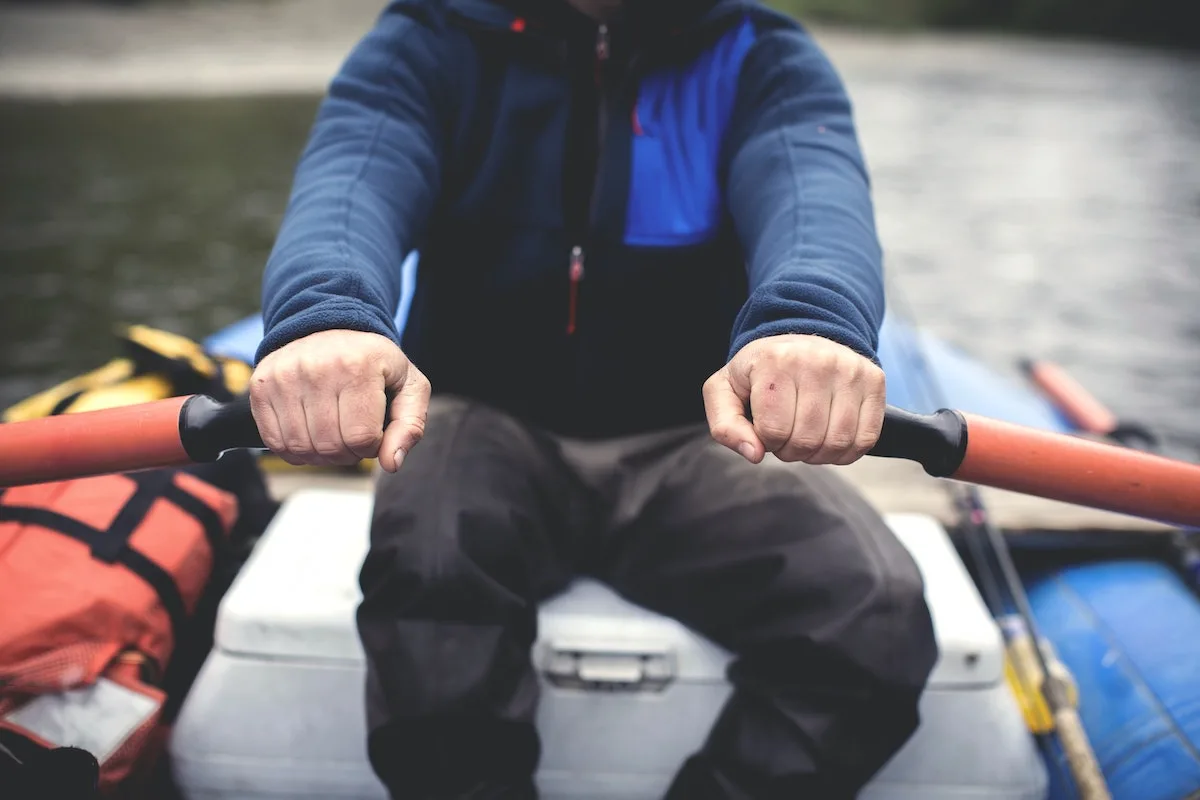
Fishing From a Boat
Getting a chance to cover a lot of water from a drift boat is amazing. Not all rivers allow it, but fishing from a boat on the way down a river can be a trip of a lifetime! Hopefully your boat captain knows where the fish are, and you have the chance to cast to water you might otherwise not get access to.
With that said, be respectful of the folks that had to hike their way in. Place your boat on the opposite side of fisherman on the bank. Get your line out of the water, pull the oars up, and don’t blow their spot up. You have so much water to cover that day.
Keep in mind there is no way to control the worst possible thing you might see on a river . . . tubers! If it happens, get your line out of the water and be prepared to bail on your spot after they pass through splashing.
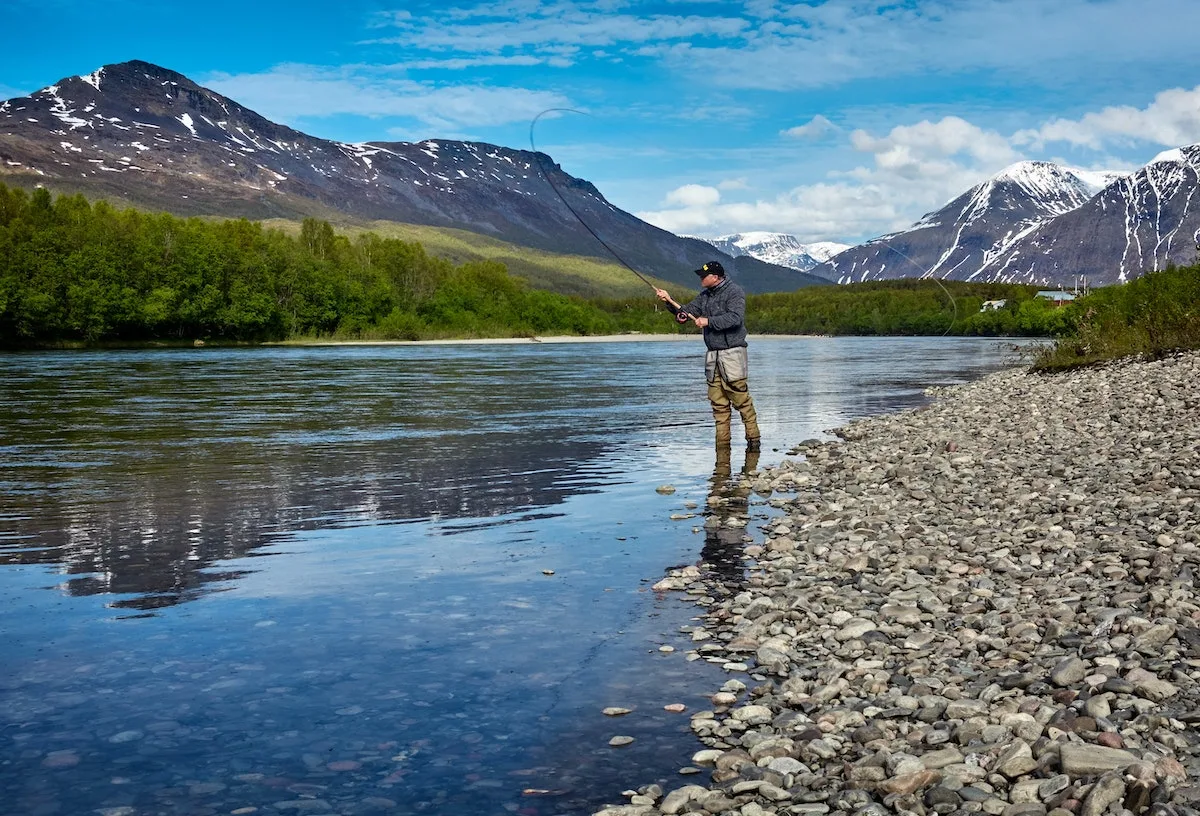
Respect Private Land
One of the most frustrating parts of fishing can be navigating private land and the access points to public water. Long stretches of great water just aren’t available to the bank fisherman, and that needs to be respected.
In highly frequented areas you might see very clear signage that specifically states it is private property. Other areas may be more subtle, with old fence lines and boundary markers as the only indicators. In any case, don’t ruin it for others.
There are many cases where landowners allow pass through foot traffic to fisherman headed to public water. Know where you are and where you can fish.
Note: there may be in rules in your state (like Montana) that specify as long as you navigate the river while in the river, you can fish anywhere. Just make sure you plan your entry and exit points.
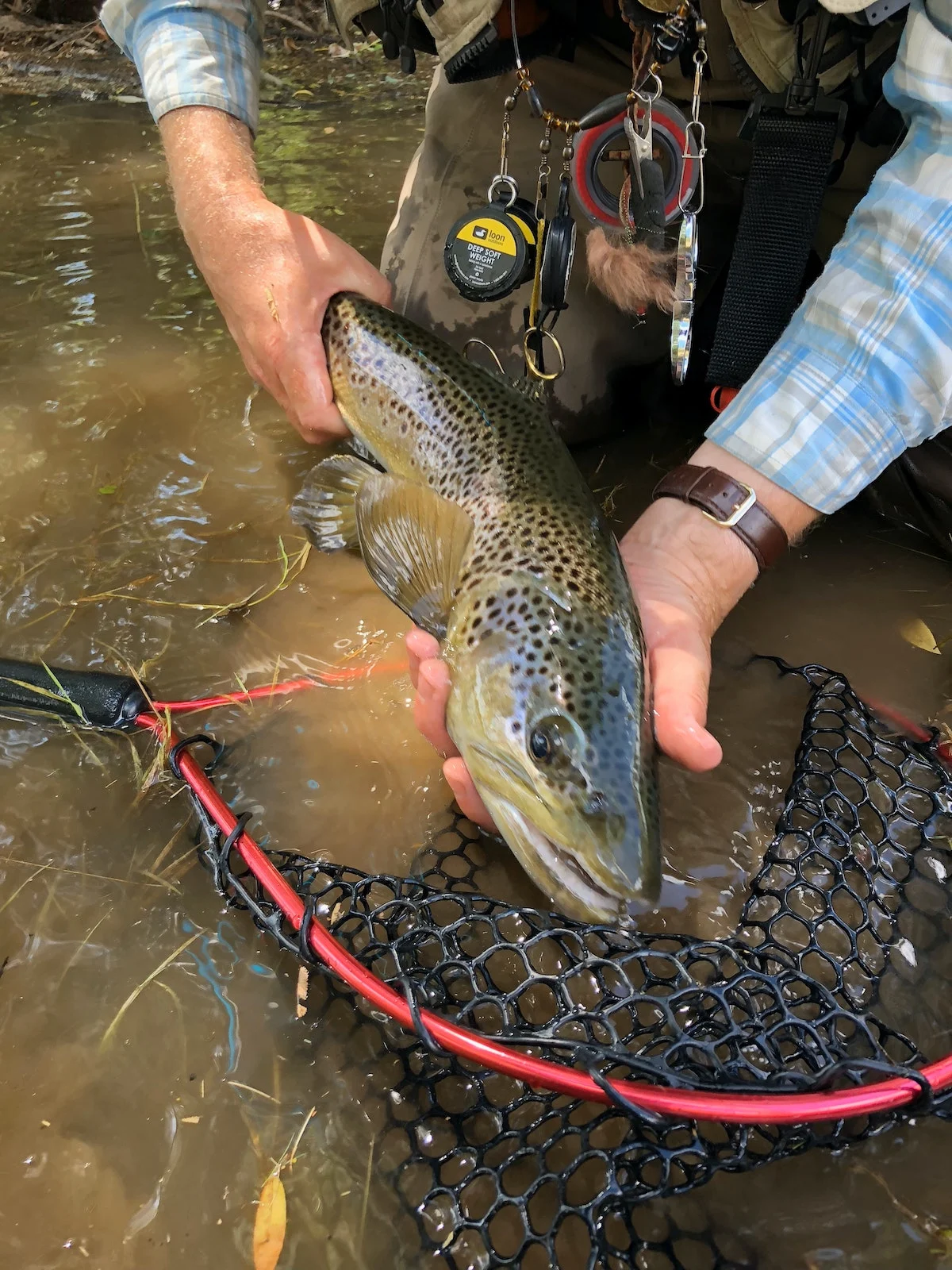
Know the Rules
Being from the pacific northwest, it is very embarrassing to be driving down a canyon in Wyoming discussing with friends when the different parts of the river open, just to drive around a bend to see a vehicle with Oregon plates fishing a closed section of the river.
Knowing the rules sounds simple. However, rules, timing, and restrictions seem to change frequently these days to protect fish and rivers as conditions, weather patterns, and fish counts fluctuate. Do your research, know where and when you can be on the river. Also, just fish smart and use barbless hooks. Yeah, you might lose a fish or two but the over impact to the fish will be reduced. Don’t forget to have the right tags when fishing water that runs through Indian Reservations and other restricted areas.
Leave No Trace
Generally, fly fisherman are very good about leaving things as good or better then the way they found them. It’s not unusual to see a drift boat unloading a bunch of garbage collected from the river at the end of the day. With that said, don’t forgot to collect up all the discarded leader or cut tippet throughout the day. Make sure all the plastic doesn’t end up in the river.
Besides being conscious of what we may leave behind during a day on the river, it’s important to consider the river and ecosystem itself. Just like a highly frequented hiking trail with clear paths, use the established foot paths along the riverbank. You don’t need to invent your own.
Also, if you put your fly in a tree that is your fault and not the tree’s fault. You don’t get to destroy the branches of a tree trying to get your $2 fly. Just get better at casting!
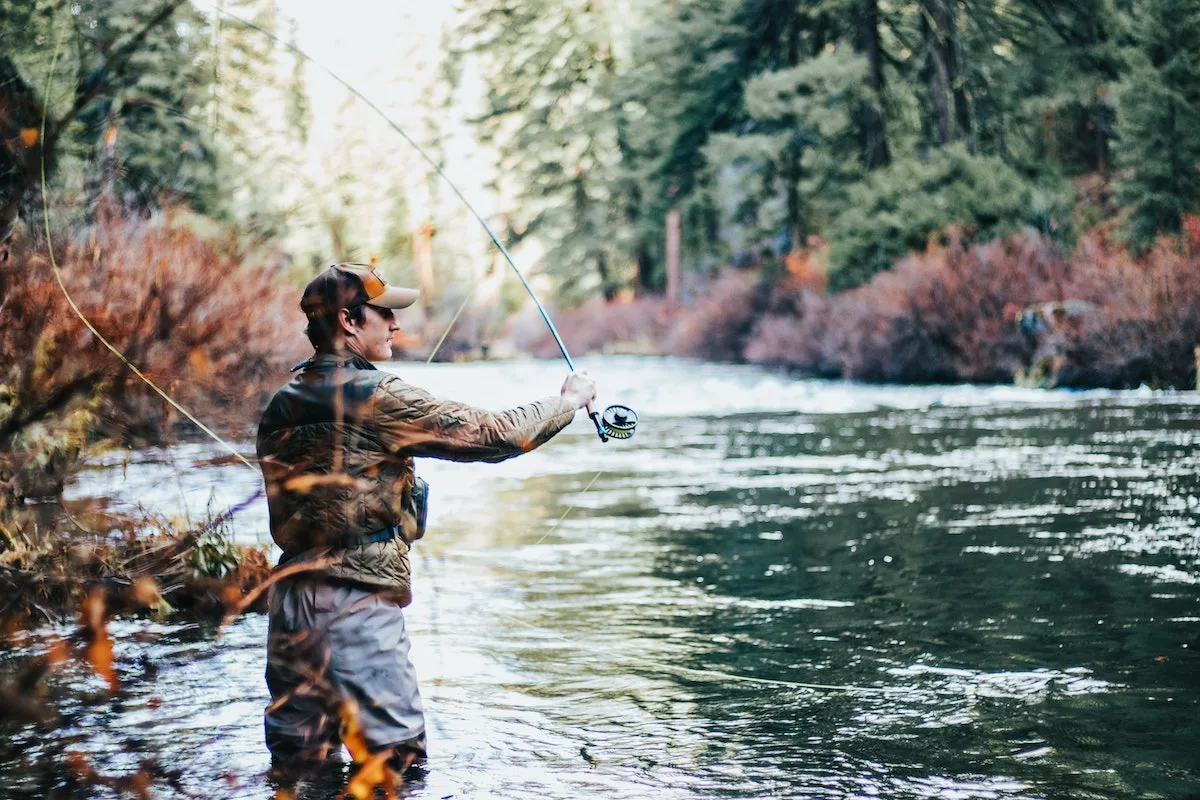
Be Polite
Fisherman are funny characters. For an activity that is very solitary, there are a lot of folks that act like they need to “win” at fly fishing. Just be cool, say hi, and make friends. You don’t need to overstate how successful your day has been, and there is really no reason to not share a little beta on what is working.
Sharing and learning is not going to keep you from catching fish. Granted, guides that make a living from their spots and beta are never going to be that cool, but there are still a few that will help you out when you cross paths.
What are your river etiquette tips? Let me know in the comments! Also feel free to share your experiences with river etiquette with me as well.
